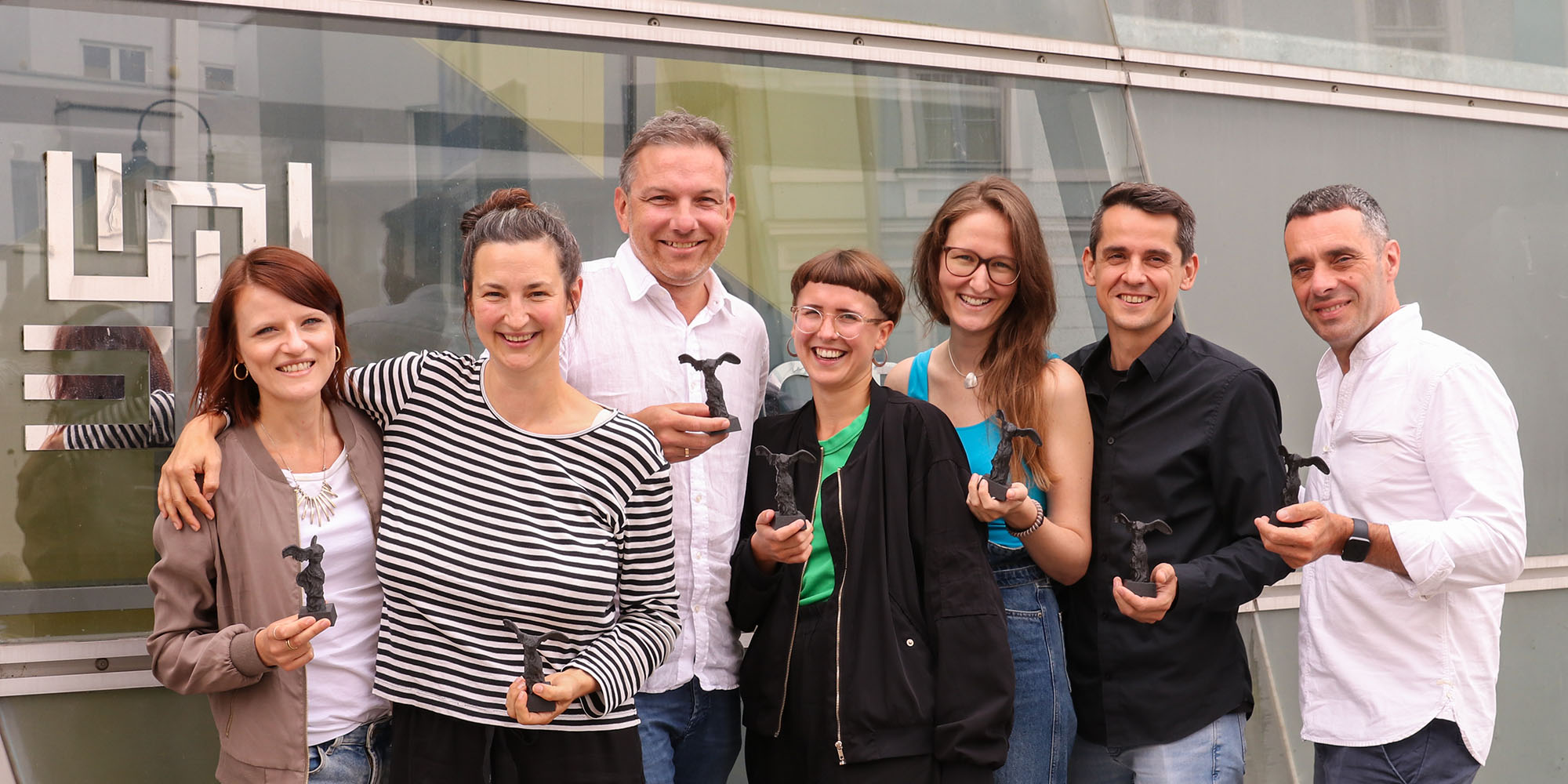Bring young and old together with a card game and work out stories about the future together. Or use a wearable in Deep Space 8K to experience your own heartbeat like never before – presented with sounds and visualization – and get to know yourself and the group around you in a completely new way. This is made possible by the two winning projects of this year’s internal ideas competition Ideas Expedition of the Ars Electronica Futurelab: The intergenerational card game “Bridge 2040” by Denise Hirtenfelder, Peter Haider, Nicolas Naveau and Maria Pfeifer and the application “Deep Sync” for Deep Space 8K by Susanne Kiesenhofer, Anna Oelsch and Daniel Rammer.
Visitors to the Ars Electronica Festival can try out both projects as part of the Open Futurelab – free of charge at POSTCITY.
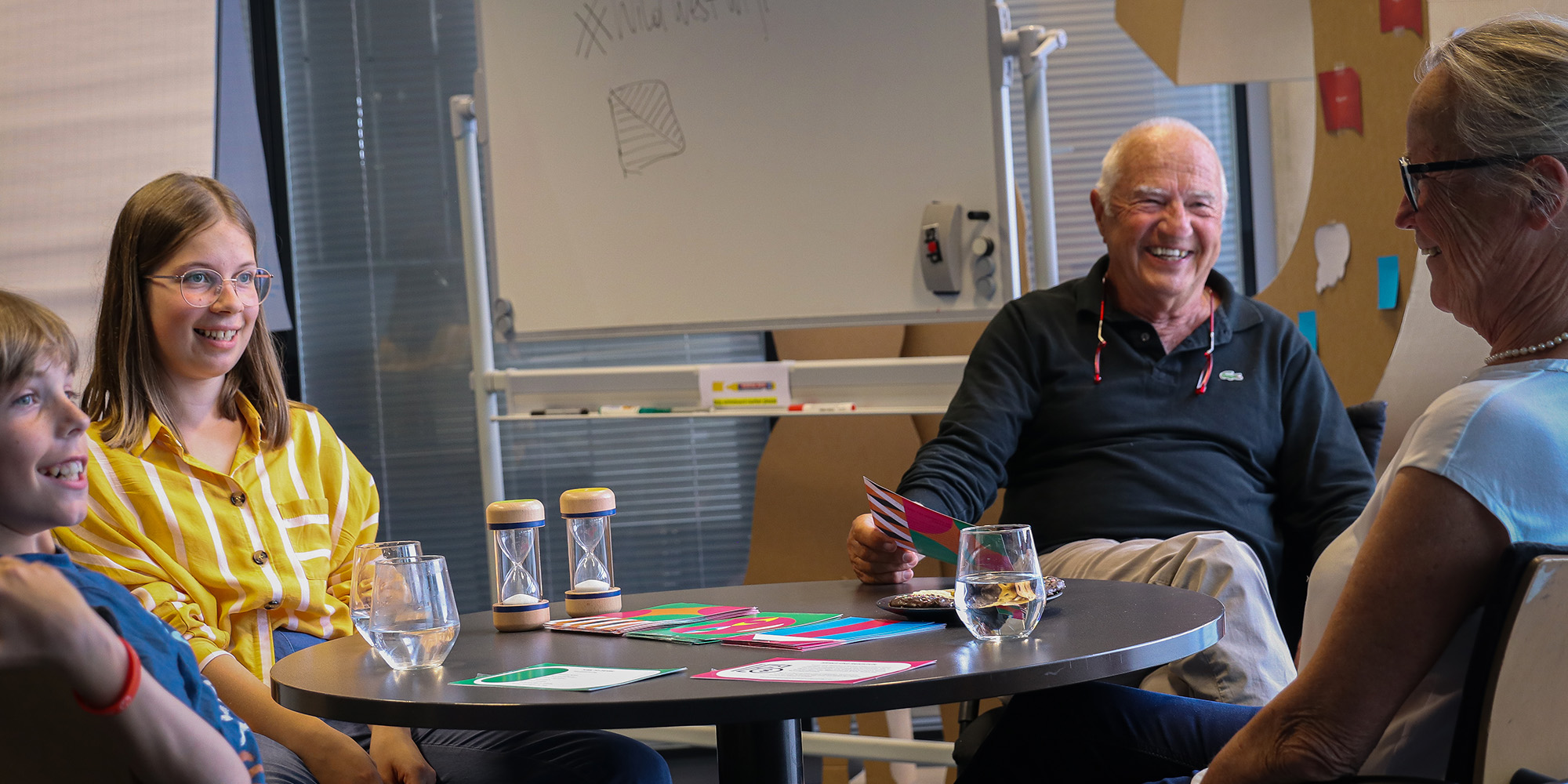
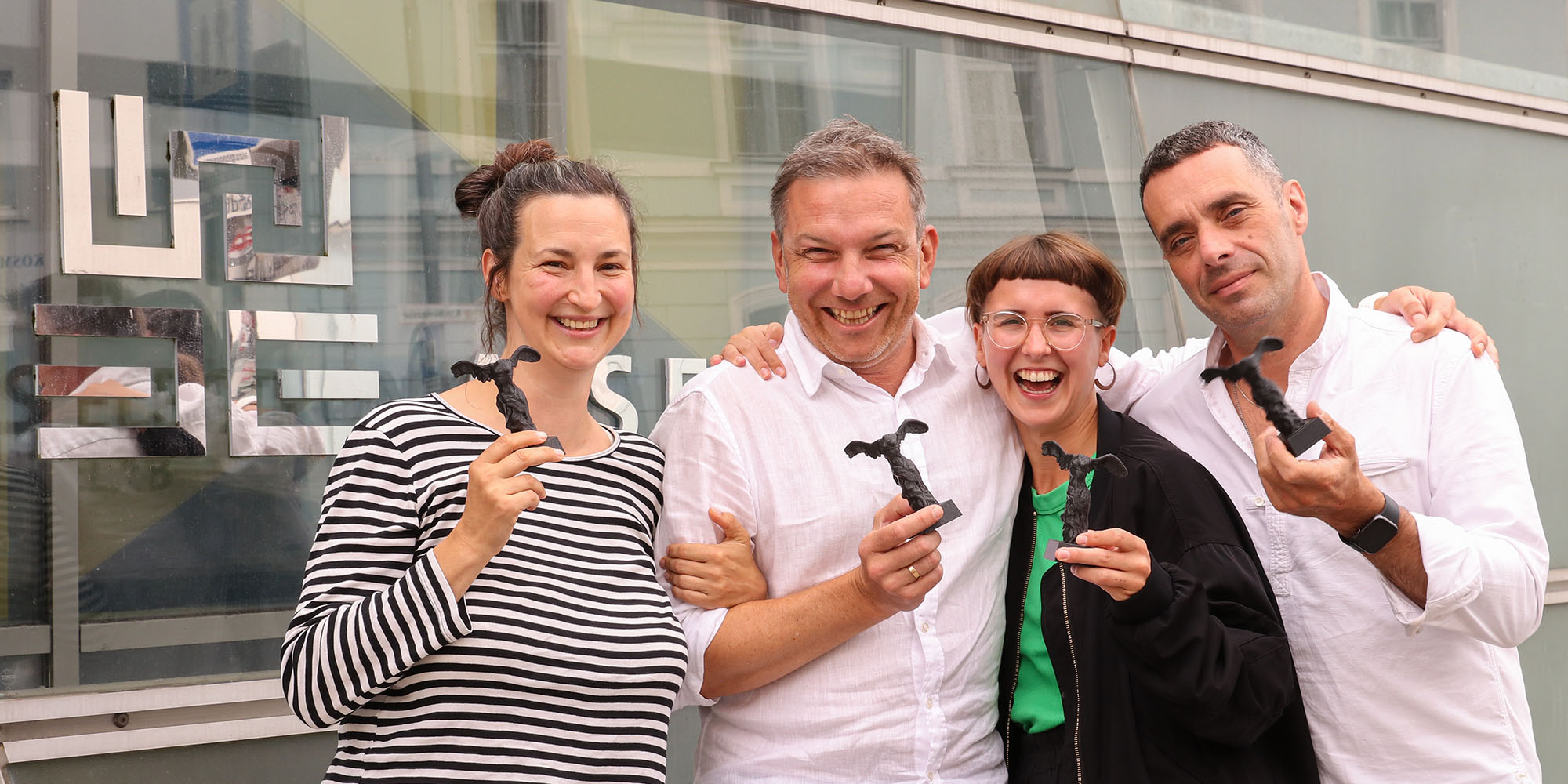
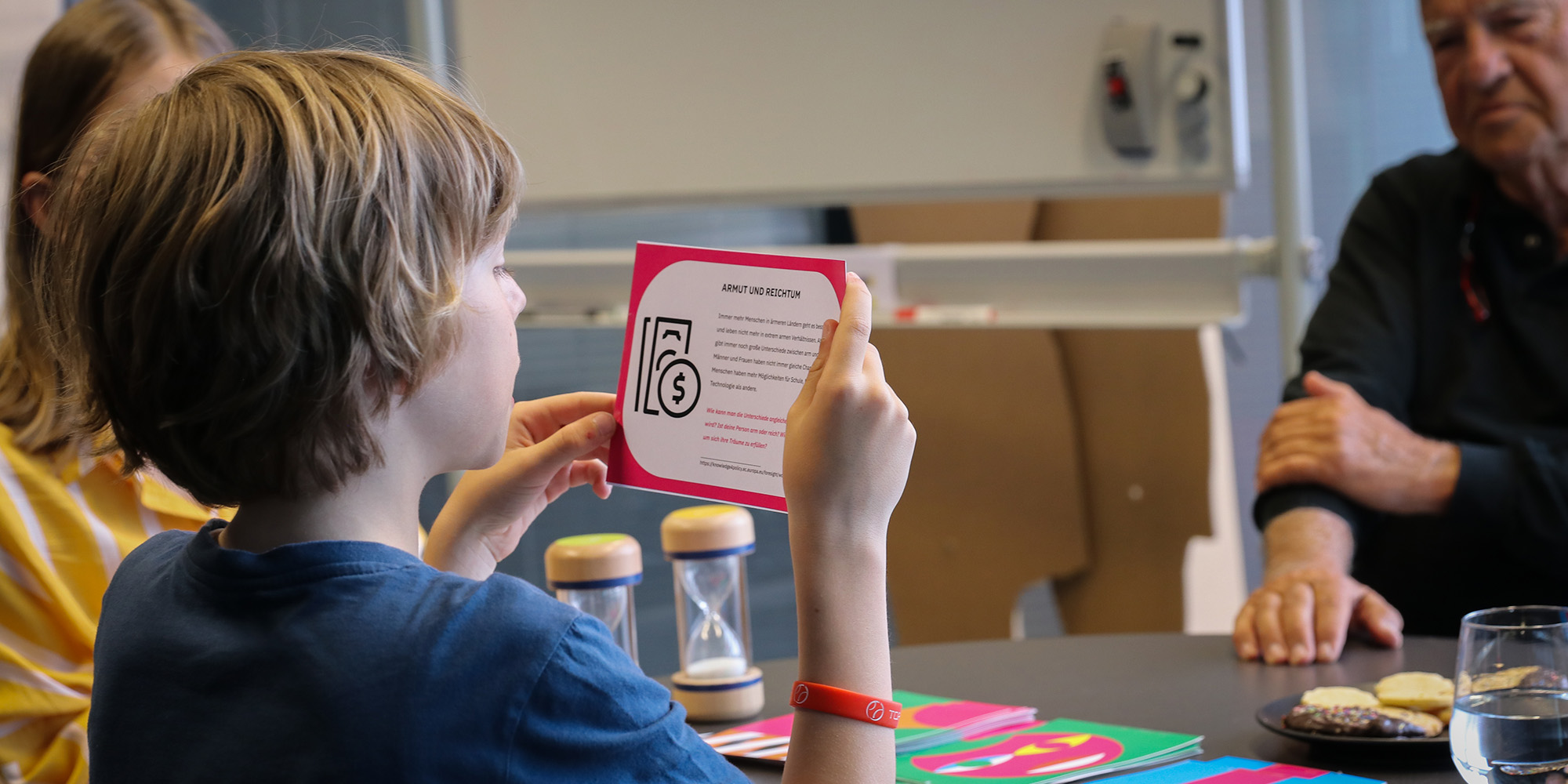
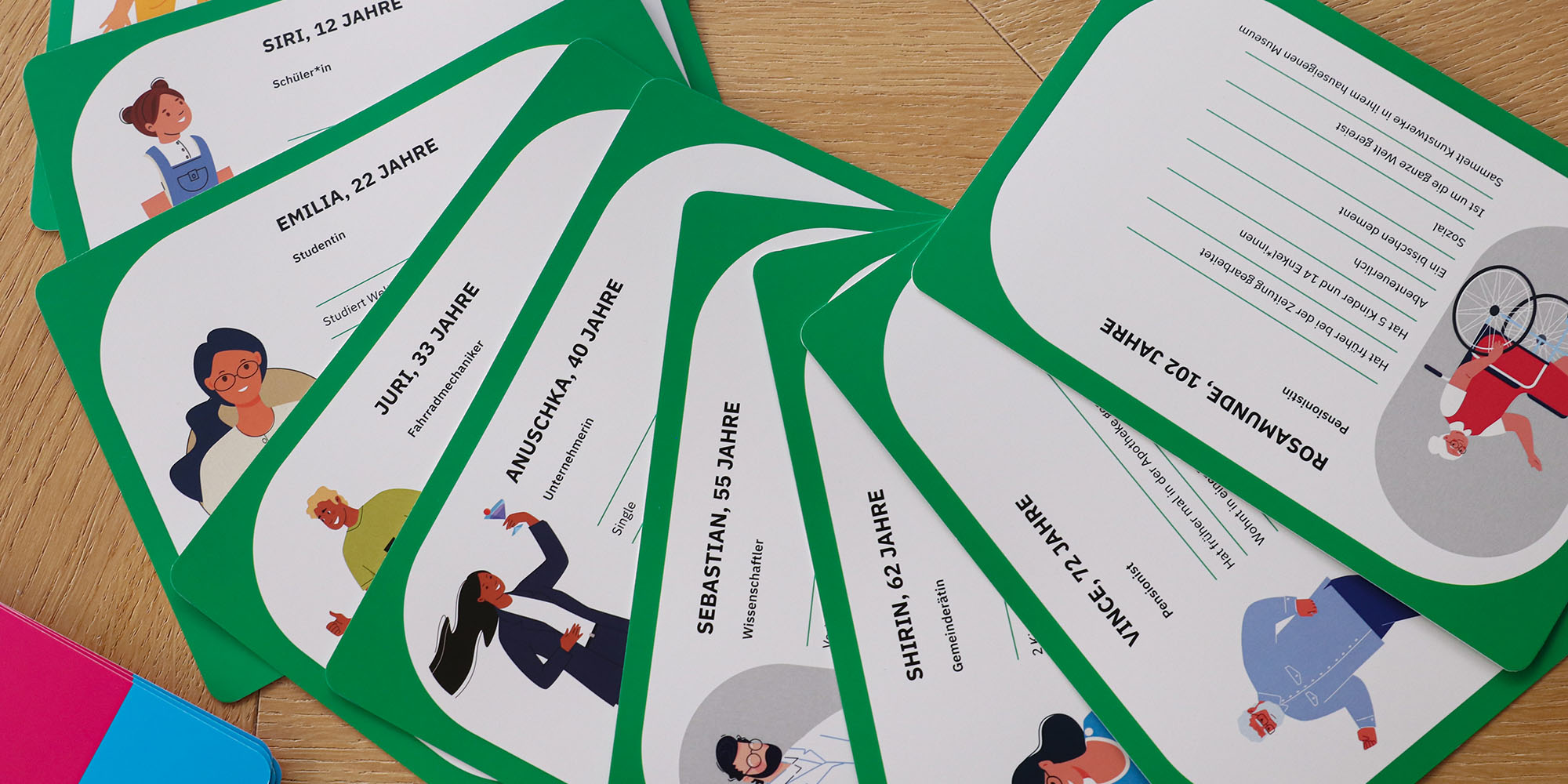
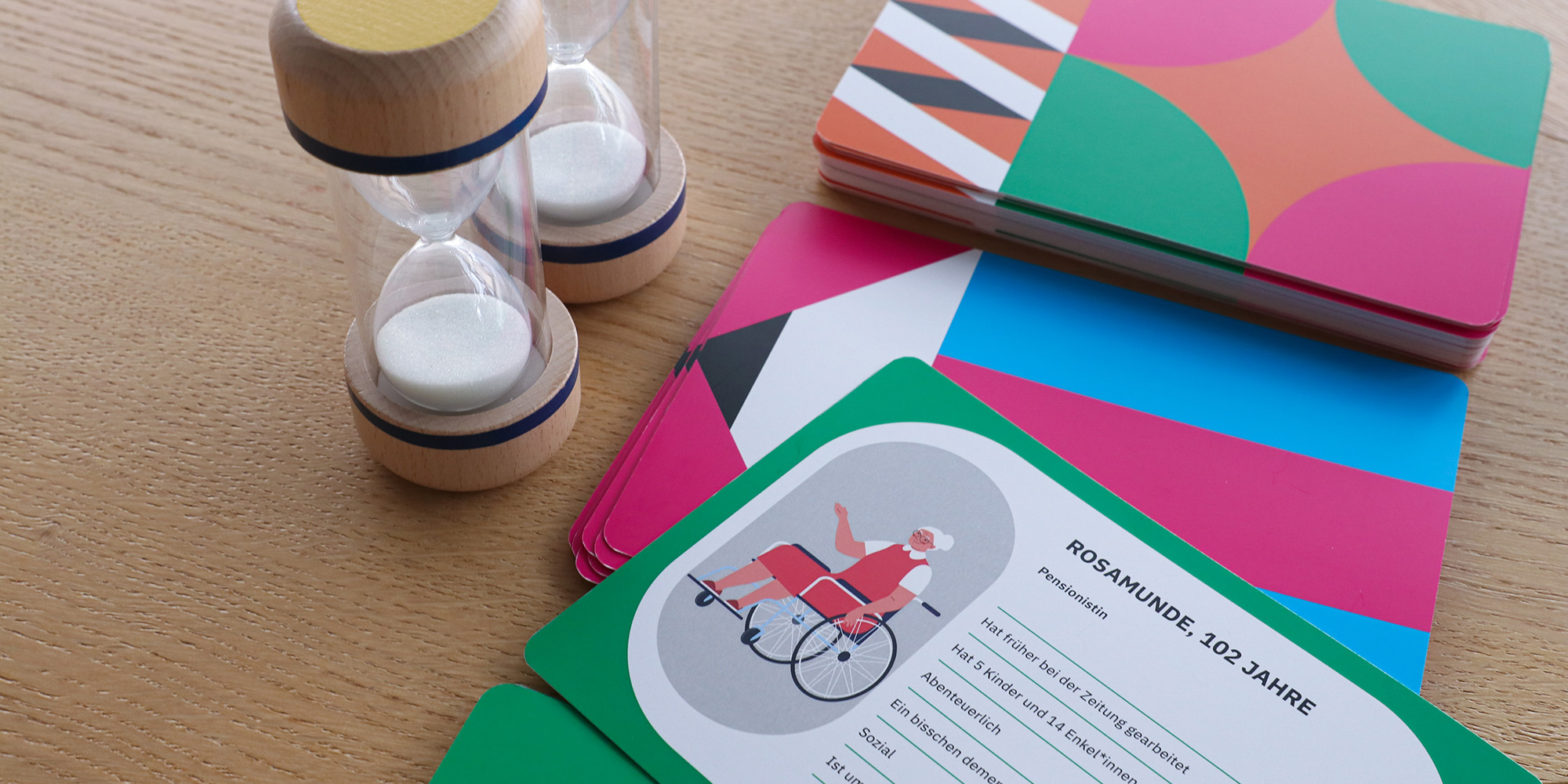
“Bridge 2040” is a fast-paced card game as a bridge to the future and can be played by families, but also in workshops. An everyday story, a thriller, an adventure of the future: Players react to trends, works of art and questions with the help of different cards and thus develop an exciting story about a fictional person in the year 2040. The special aspect about Bridge 2040 is its target groups: young people aged eight to 14 and seniors aged 65 and over. Both are often forgotten or not sufficiently integrated into public discourse about the future. These are people with decades of experience and those with a fresh, unbiased view of the world. By involving these integral parts of society, the creators of Bridge 2040 want to stimulate a dialogue on future issues.
In order to reach people from different social classes, the inventors rely on simplified language and accessibility. In addition, the game can be played from anywhere and analogue – without any technology. The aim is to open up a communication space – and along the way, fresh and funny ideas emerge that build a bridge between the generations.
At the Ars Electronica Festival’s Open Futurelab, a guided game session with the developers awaits visitors every day. In addition, a Bridge 2040 table with a recorded tutorial is available at any time. Please note that the game is only available in German for now.
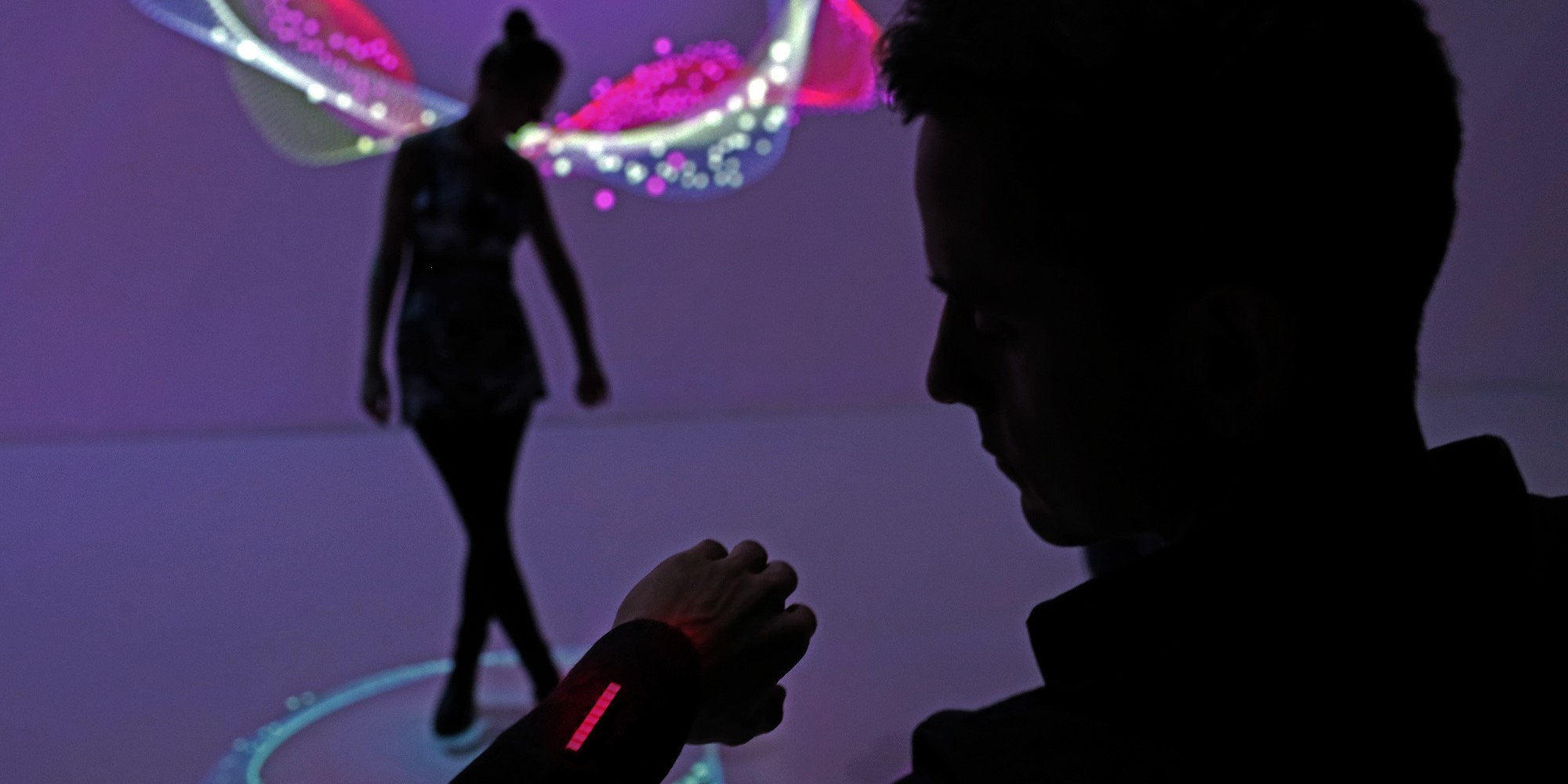
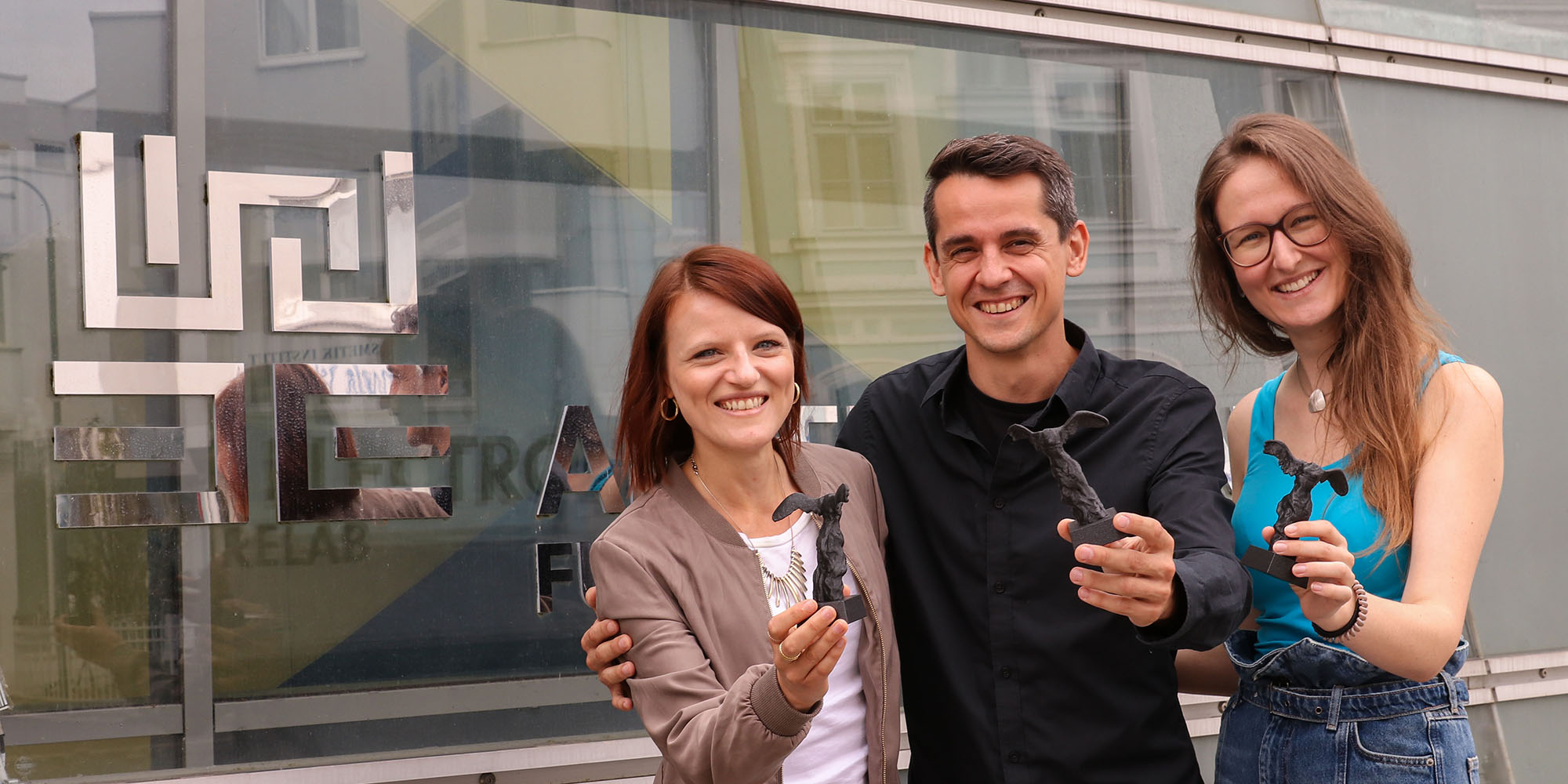
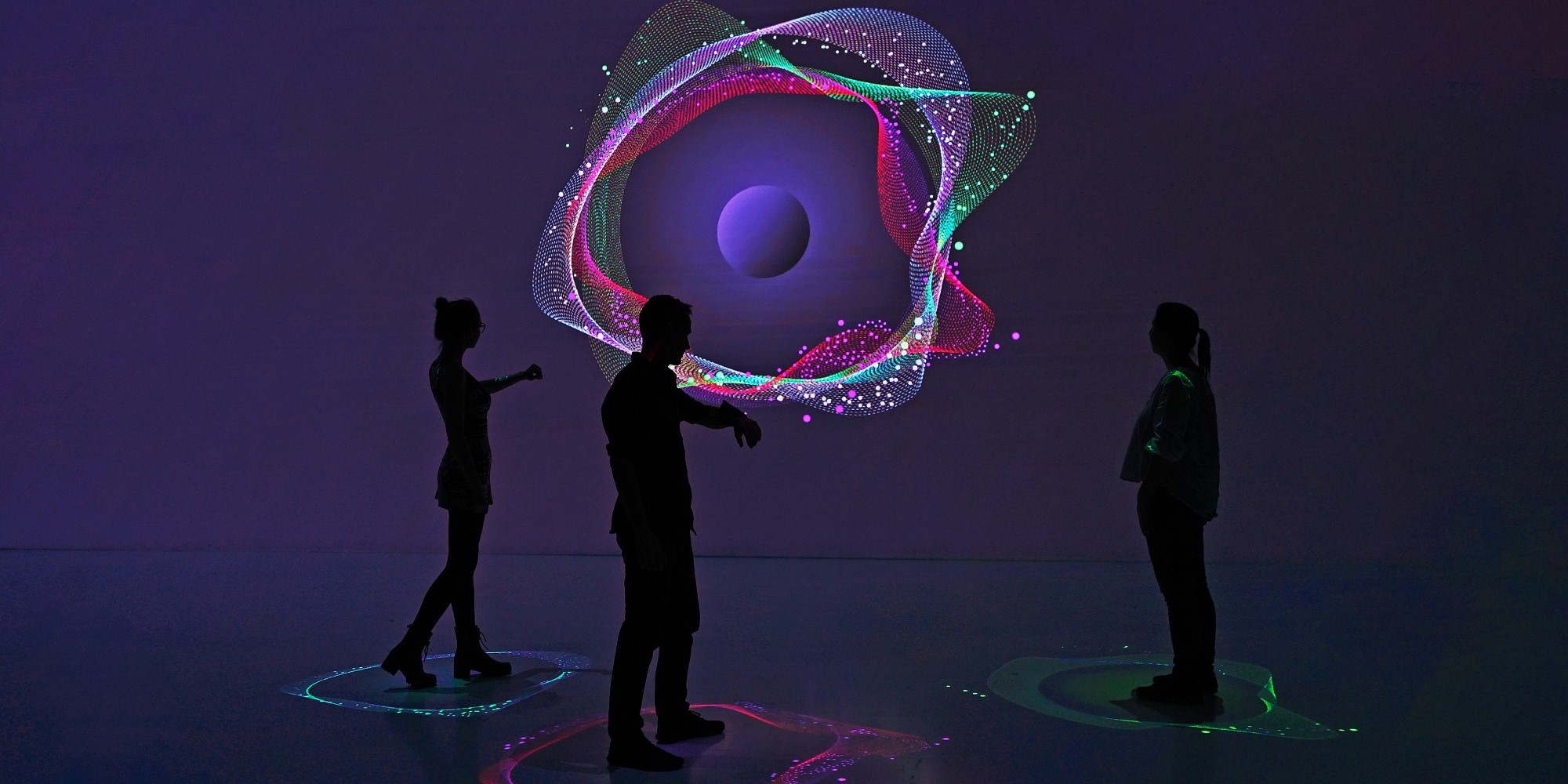
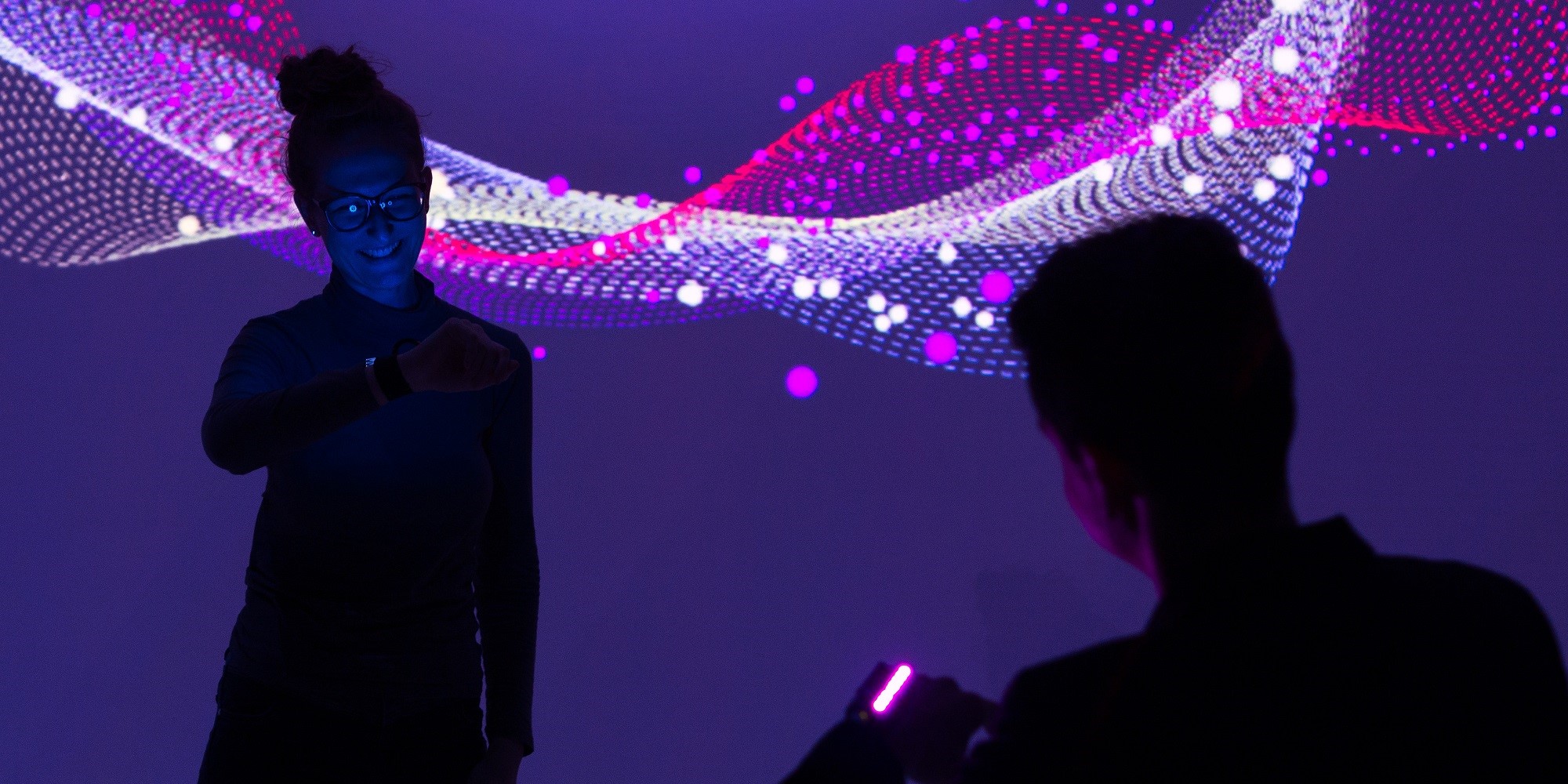
“Deep Sync” extends the Ars Electronica Center’s Deep Space 8K with biodata as input to explore fundamental human behavior and reaction. Custom wearables are used to visualize and sonify the visitor’s heartbeats in this unique new application, combined with position tracking. Bearing the questions: What does it take for us to get in sync with each other? Can collective synchronization be induced by visualizing and sonifying physiological processes? To what extent are we able to control unconscious reactions like our heartbeat, and how can they be influenced by our surroundings?
Using biodata as input in a group setting is fascinating from multiple perspectives. Since we are not used to hearing and seeing our own biofeedback and that of others, it makes us aware of processes that normally happen unconsciously. Biodata also crosses all barriers – be it language, age, or origin. It is inclusive and intuitive. Moreover, it is not reproducible – each experience is different and unique.
“Deep Sync” could be used to promote team building, as tool for self-exploration, or to connect with strangers. The creators aim to open not only an audiovisual experience space but even more so room for discussion and experimentation in Deep Space 8K. Another key aspect of the project is to collect data for further research – exploring new forms of interaction in Deep Space 8K. The goal is to create an infrastructure, extend the functionality of Deep Space 8K, and make the wearables available for other projects and purposes as well.
The premiere of “Deep Sync” will take place on Wednesday, September 6, 11.30 am, in Deep Space 8K in the Ars Electronica Center. In the Open Futurelab area, festival visitors can playfully explore a specially tailored version of the application throughout the duration of the Ars Electronica Festival.
